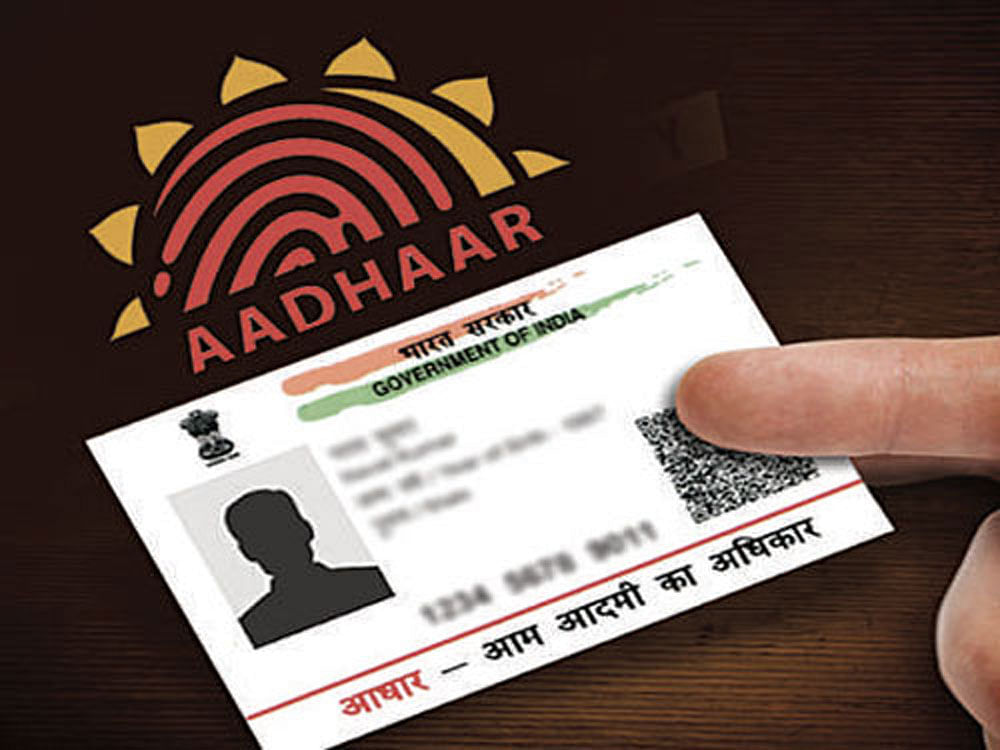
The Centre on Thursday maintained before the Supreme Court that nobody would be excluded or denied any entitlement due to inability to link Aadhaar.
It said a note by the cabinet secretary has been sent in this regard to states to assure that no citizen is deprived of her dues. If biometrics do not work, then furnishing a physical copy of Aadhaar or enrolment application form is sufficient, it submitted before a five-judge bench presided over by the chief justice.
The government's assurance came after Justice D Y Chandrachud, sitting in the bench, asked if it was not their obligation to ensure that ordinary people, especially pensioners and the marginalised sections of the community, were not denied their benefits till an adequate mechanism for authentication of identity under the Aadhaar Act was put in place.
Additional Solicitor General Tushar Mehta cited the note sent in December last year, stating that the possession of Aadhaar was enough to access entitlements if online authentication was not feasible.
He also maintained that the Aadhaar Act does not exclude anyone from accessing their entitlements merely because of authentication failures by fingerprint and iris scanners.
Senior advocate Kapil Sibal, representing the West Bengal government, contended that there were instances where elderly people could not get their pension because the scanners were unable to read or scan their fingerprints or irises.
Senior advocate Rakesh Dwivedi, representing the UIDAI, countered by saying anybody who produced his Aadhaar card was given his entitlements.
Sibal sought an interim order to ensure citizens get their rations and other entitlements.
Attorney General K K Venugopal submitted that there was no need for an interim order as the government had already extended the deadline for Aadhaar linkage to subsidies, benefits and services to March 31, 2018. The court would now hear a batch of petitions challenging the legal validity of Aadhaar on February 13.